White Fillings In Lymington
Explore the contemporary method of white fillings
Brighten Your Smile with White Fillings
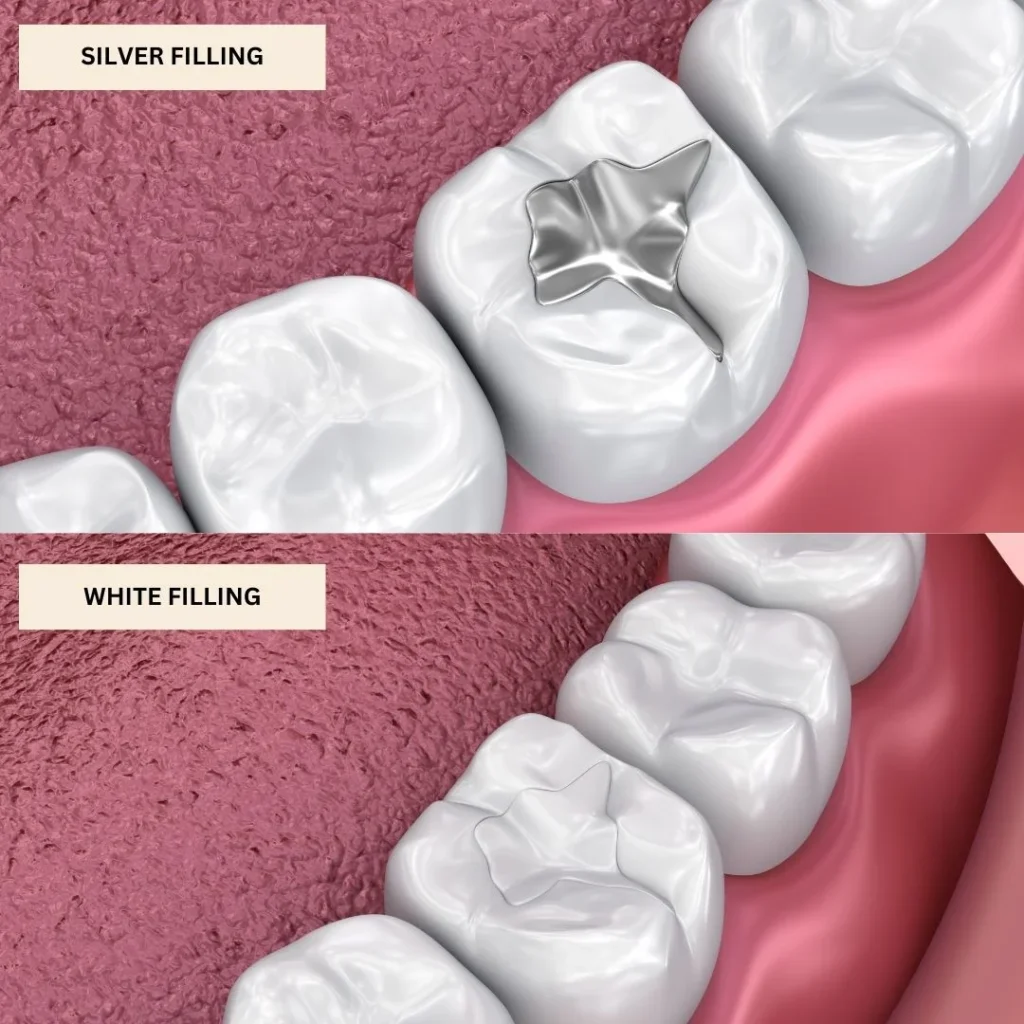
Brighten Your Smile with White Fillings
Transform your smile with our advanced white fillings service, designed to improve both appearance and durability. Unlike traditional metal fillings, our white fillings blend effortlessly with your natural teeth, offering a flawless, natural finish. Custom-tailored to match your tooth colour, these composite resin fillings effectively address cavities and dental imperfections with discretion. Enjoy the confidence of a healthier, more luminous smile without the concern of visible metal when you smile or talk. Opt for our white fillings to enhance your dental health and elevate your smile today.
1
Composite Fillings
Composite fillings are durable and carefully colour-matched to blend seamlessly with your natural teeth. They are typically used for smaller cavities. The procedure begins with your dentist preparing the tooth before applying the composite material, which is bonded to the tooth using a special adhesive. A curing light is then used to harden and strengthen the filling.
2
Porcelain Inlays
Thanks to advanced technology, porcelain inlays can be designed and crafted in just a few visits, ensuring a precise and comfortable fit. Porcelain is a strong, long-lasting material that can be custom-shaded to match your natural teeth, providing a flawless, durable result.
Request A Free Consultation
See Some Of Our Cases
Before and After
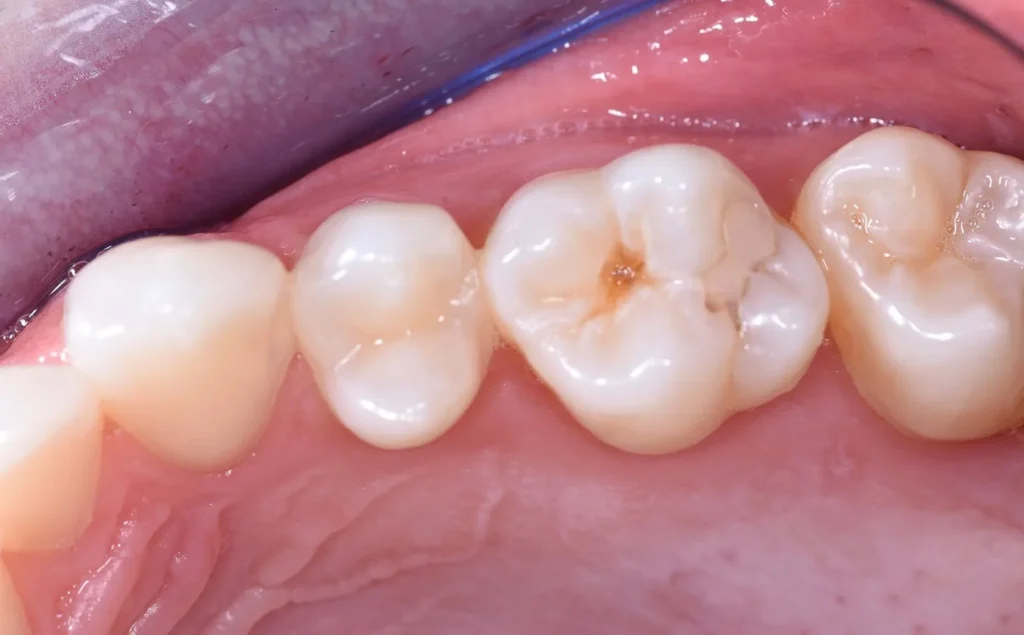
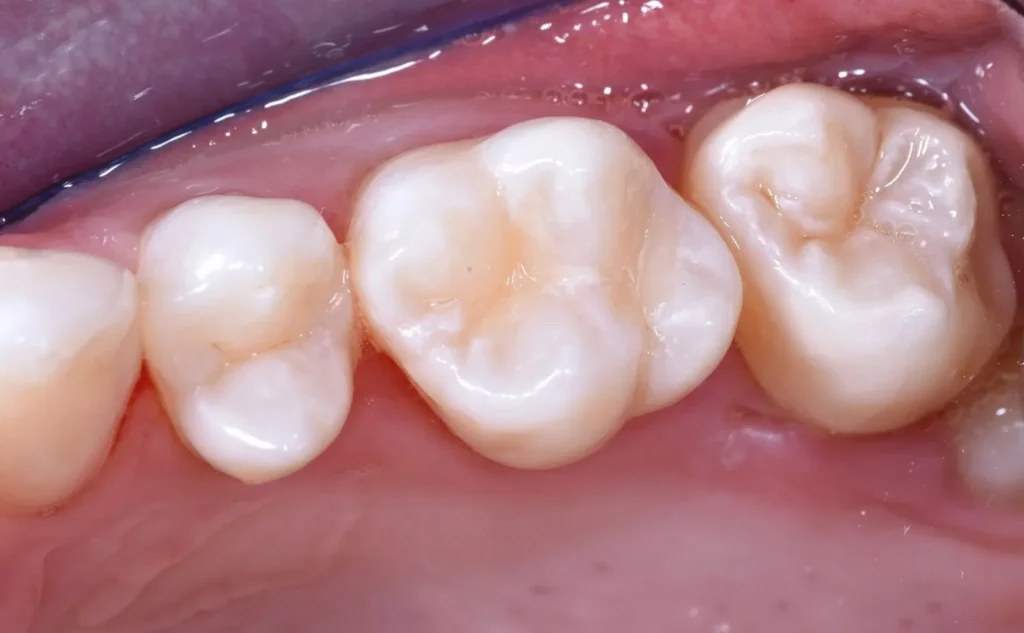
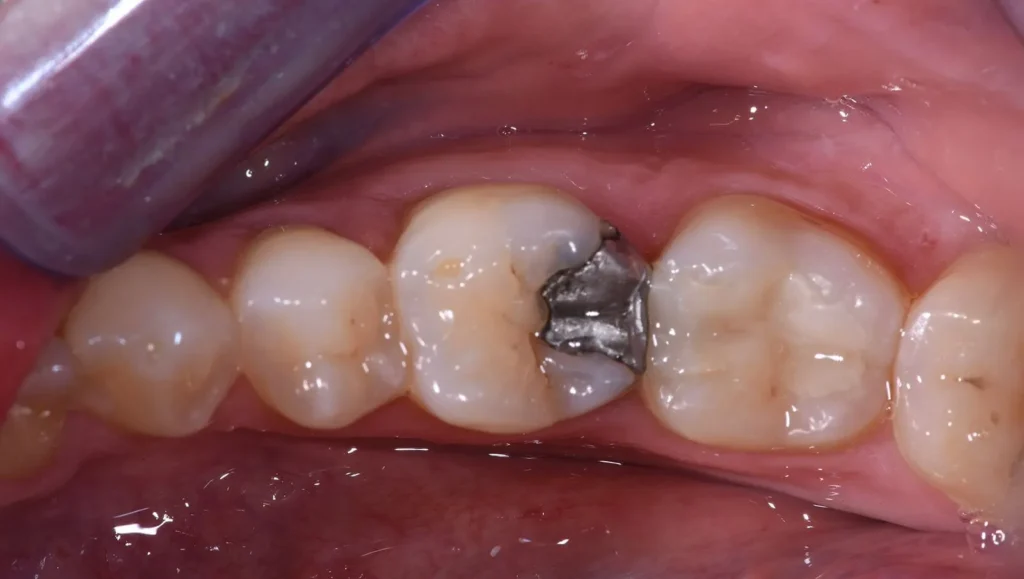
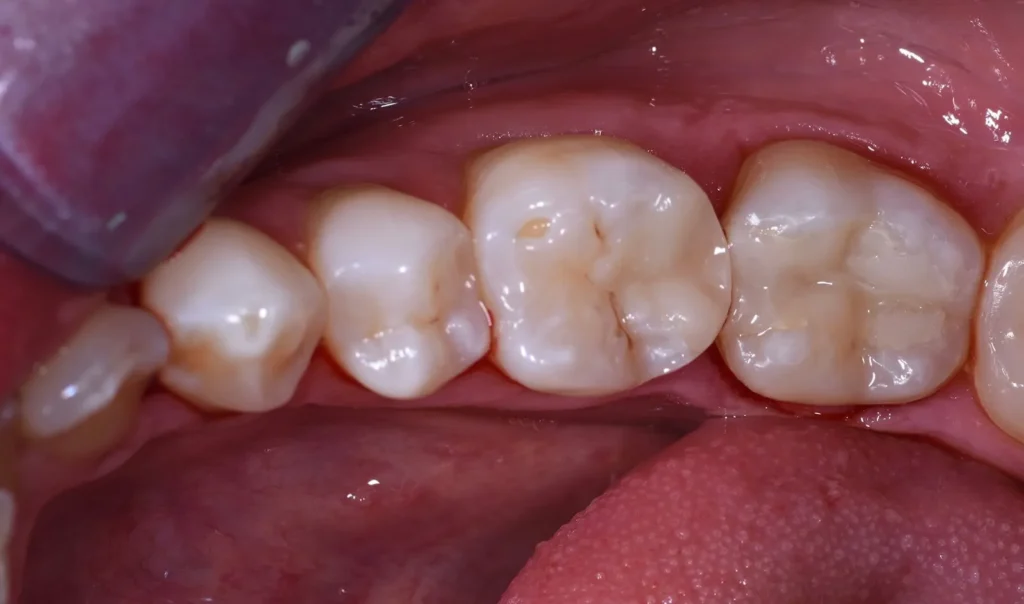
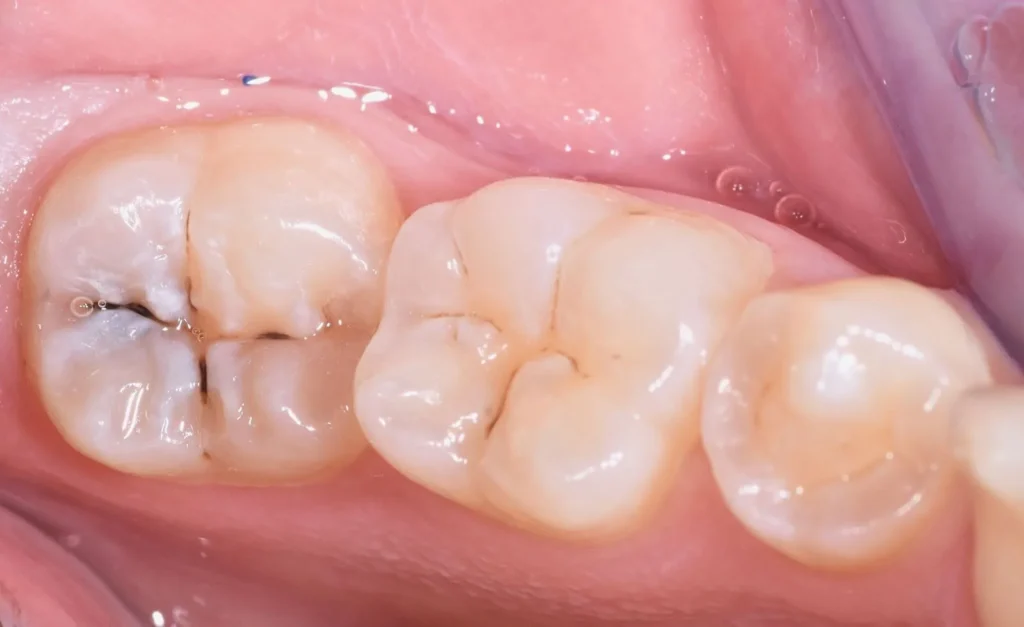
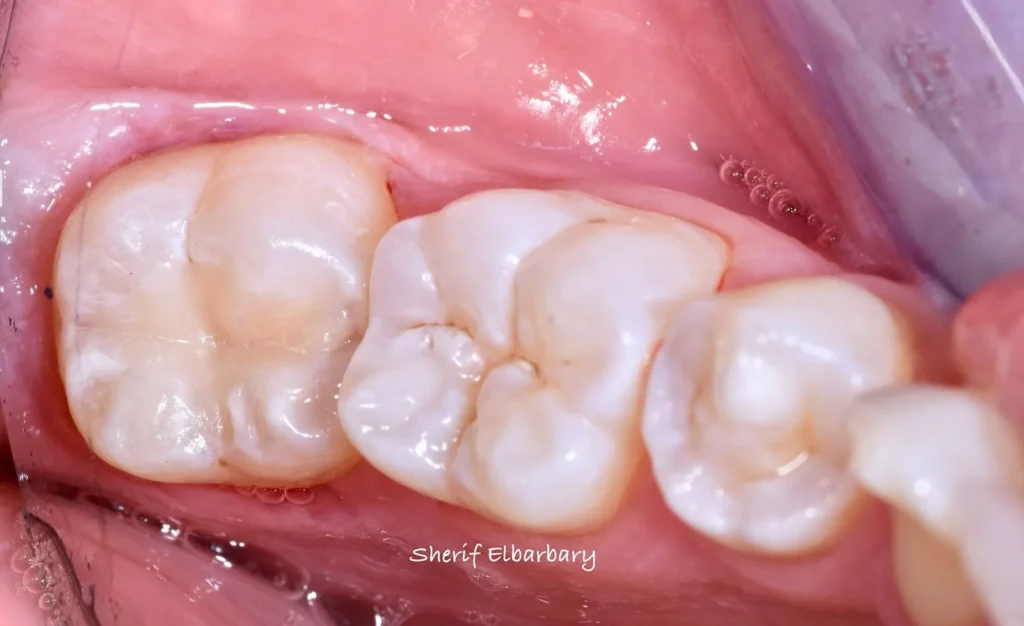
FAQs on White Fillings
1. Why opt for white fillings?
Today, fillings come in various types, each with its own advantages. Many people now prefer white fillings because they offer a more natural look compared to traditional silver fillings. This choice is especially popular among those who are mindful of their appearance, as white fillings blend seamlessly with the natural colour of the teeth, making them less noticeable when smiling or laughing.
2. Am I eligible to receive them through the NHS?
The National Health Service typically does not provide white fillings for the chewing surfaces of molars. However, this restriction does not extend to the sides of back teeth or to any front teeth. For individuals who may experience sensitivity to the metals in silver amalgam fillings, an alternative filling type might be advised. Unfortunately, this option is rarely available on the NHS, except in specific circumstances.
3. Are they expensive?
White fillings are generally available only through private dental care, so their cost can be a factor. Prices usually fluctuate depending on factors such as the size and type of the white filling, as well as the length of the treatment. For detailed pricing information, please refer to our Fee Page, or consult with our dentist for a more precise estimate before commencing treatment.”
4. Are white fillings as effective as silver amalgam fillings?
Historically, white fillings were believed to be less durable compared to silver amalgam fillings. However, with recent advancements in dental materials, modern white fillings are now on par with silver amalgam in terms of effectiveness. The longevity of a white filling depends on its location in your mouth and the amount of pressure exerted when biting. Our dentist can offer guidance on the expected lifespan of your fillings.
5. Should I consider replacing my amalgam fillings with white ones?
Generally, it is advisable to replace fillings only when your dentist deems it necessary, such as when an old filling needs to be replaced. In such cases, you may request a tooth-coloured material for the new filling. However, some dentists might opt not to use white fillings for back teeth, as they may not always provide the best results. In these situations, alternatives like crowns or inlays might be suggested, though these options may involve more extensive tooth preparation and could be more costly.
6. What materials are used in tooth-coloured fillings?
Tooth-coloured fillings are generally composed of a mix of glass particles, synthetic resin, and a hardening agent, with the exact blend varying. For more precise information about the materials used, your dentist will be able to provide further details.
7. Are there alternatives to conventional fillings?
Adhesive dentistry provides an alternative by attaching the filling directly to the tooth, often requiring less removal of tooth structure—a more desirable option for many. Other choices include crowns and inlays, which can be pricier. Additionally, veneers can serve as an alternative for front teeth in place of crowns or fillings.
What our Patients say About Us

Nicola
I’m a very nervous patient. Harjeet has guided me with kindness, patience and compassion, and treated with me with incredible professionalism

Lynn Lamb

Pat
The best thing I ever did for myself was to make the decision to have my dental implants 6 years ago. Mahesh Nagpal changed my smile and I will forever be grateful. With 5 implants and excellent ongoing care and advice I regained my smile, confidence and optimism.

Roger
Fear of the dentist? I went through the apprehension and stress for absolutely no reason. After local anesthetic, I felt absolutely no pain. After surgery,I didn’t take a single painkiller. Not because I’m brave, I just had no pain. Amazing. I’m only sorry I suffered the stupid dentures for so long instead of going to the Smile Studio sooner.

Miss S
I had 2 implants placed to secure my dentures firmly in place and this has worked out really well. I would not hesitate to recommend your services, both for technical excellence and your kind and patient care. For the first time I can say it was a pleasure to visit the Dentist.

Bernice
I don’t even notice that I have Implant, as they feel like natural teeth.

Claire
Dr. Mahesh Nagpal is absolutely superb. He’s a perfectionist and wants his patients to be delighted with their dental implants. I can not fault him as he’s simply amazing. We’ll worth every penny.

Sarah
Had the most amazing treatment by Manesh Napal for the past few months.He has given me back my smile and for that I shall be eternally grateful. 5 stars are not enough

Billy
Excellent dentist. Very friendly and make you feel as comfortable as possible. Always make time to chat and know their patients details. Great service from Peter

